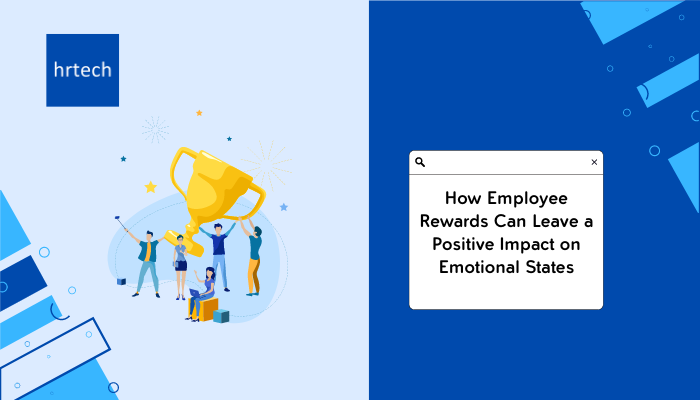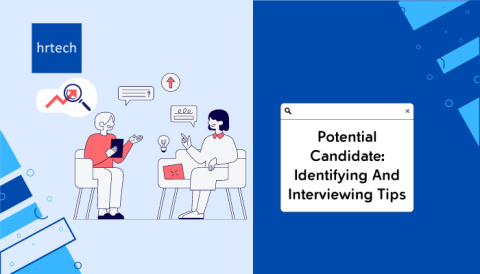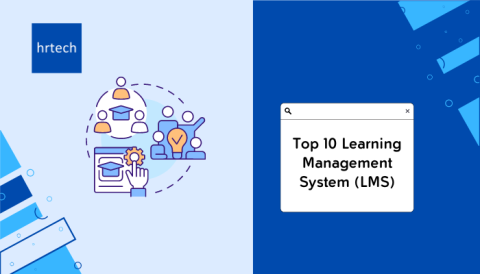As we navigate the evolving nature of today’s workforce, it becomes imperative to reassess and modernize our methods of recognizing and rewarding employees. The traditional, one-size-fits-all approach to Recognition and Rewards (R&R) is no longer sufficient in today’s diverse and dynamic work environment. The modern workforce, dominated by Gen Z and Millennials, demands personalization, flexibility, and innovation in R&R programs.
Personalized Rewards is a game-changing strategy that aligns recognition with individual preferences, thereby transforming the impact of R&R programs. This shift towards personalization is more than a trend; it is a powerful movement re-shaping the entire landscape of employee engagement and satisfaction.
In this article, we will explore how these R&R programs are changing over time, the importance of personalization, and other innovative changes that can enhance R&R programs to better suit the needs of a changing workforce.
To begin, let us understand the distinction between Traditional and Present-Day Employee Engagement Programs.
Traditional vs. Present-Day Employee Engagement Programs
In today’s dynamic workplace, where the battle for talent is fierce and employee expectations constantly evolve, conventional Recognition and Rewards (R&R) approaches are being re-considered.
Traditional employee engagement programs have primarily focused on loyalty and retention. These programs aim to create a sense of security and long-term commitment amongst employees. However, this approach is insufficient, considering the dynamic nature of today’s workforce.
Present-day engagement programs, on the other hand, emphasize understanding what influences the behaviors of employees. Companies can design more effective Recognition and Rewards strategies which cater to individual preferences and drive better performance by understanding what motivates their employees.
The Changing Workforce Dynamics
The modern workforce is characterized by several key changes:
- Generational Diversity: The current workforce includes Baby Boomers, Generation X, Millennials, and Generation Z; each with unique values, expectations, and preferences.
- Remote and Hybrid Work: The rise of remote and hybrid work models have transformed how employees interact with their employers and colleagues.
- Technological Advancements: The integration of advanced technologies in the workplace has changed how employees work and how organizations engage with them.
- Focus on Well-being: There is a growing emphasis on mental health, work-life balance, and overall well-being.
These changes necessitate a shift in how organizations approach R&R programs. Here comes the importance of personalization and emotional connection in R&R programs to meet the needs of changing workforce dynamics.
The Importance of Personalization in R&R Programs
Personalization in R&R programs is more than just a trend; it is a critical component for ensuring the effectiveness and impact of these initiatives. Personalization means tailoring rewards and recognition to fit the unique preferences, needs, and aspirations of each employee. This approach acknowledges that employees are not a monolithic group; they come from diverse backgrounds and have different motivations and values.
By offering personalized rewards, such as customized gift cards, experiences that align with individual interests, or professional development opportunities that cater to specific career goals; organizations can significantly enhance employee satisfaction and engagement. Personalization also extends to the manner and timing of recognition, ensuring it feels sincere and meaningful. This individualized approach not only makes employees feel more valued and understood but also fosters a deeper connection to the organization, leading to higher levels of loyalty and productivity. As workforce dynamics continue to evolve, the ability to personalize R&R programs will be a key differentiator for organizations seeking to attract and retain top talent.
Building an Emotional Connection through Recognition and Rewards Programs
Building an emotional connection with employees through R&R programs is essential for fostering a loyal and motivated workforce. The emotional connection goes beyond mere acknowledgment of work; it taps into the deeper feelings of belonging, appreciation, and purpose. When employees feel that their contributions are genuinely valued and that they are an integral part of the organization’s success, it cultivates a strong emotional bond. This can be achieved through thoughtful and heartfelt recognition that highlights individual achievements and personal contributions. Storytelling, personalized messages from leadership, and celebrating personal milestones such as work anniversaries or personal achievements can significantly enhance this emotional connection.
Moreover, involving employees in the process of designing R&R programs ensures that their voices are heard, and their preferences are considered, further strengthening their emotional investment in the company. By focusing on creating a positive emotional experience through R&R initiatives, organizations can enhance employee morale, increase retention rates, and foster a culture of mutual respect and support. This emotional connection is a powerful driver of employee engagement and overall organizational success.
Advantages of Personalized Recognition and Rewards
- Beyond the Paycheck: The Lasting Impact
Monetary rewards, while appreciated, often provide only a fleeting boost in morale. Once the money is spent, the reward is forgotten. In contrast, personalized rewards create lasting memories and ongoing positive feelings. A unique experience or a thoughtful gift aligned with personal interests can be remembered and cherished long after it is received. - Fueling Intrinsic Motivation
Personalized rewards tap into intrinsic motivation by addressing the specific interests and values of employees. For example, consider an employee passionate about continuous learning. A reward that includes access to a professional development course will likely be far more motivating than a cash bonus, which might not directly support their personal goals. This alignment with intrinsic interests fosters deeper engagement and satisfaction. - Elevating Engagement and Retention
Engagement is the heartbeat of organizational success. Personalized rewards elevate engagement by recognizing employees in ways that resonate with them personally. When employees feel appreciated for their unique contributions, they are more likely to be committed and loyal. This personalized approach not only boosts satisfaction but also enhances retention, reducing turnover rates and the associated costs of recruitment and training. - Versatility and Inclusivity: Rewards for All
Personalized rewards offer unparalleled versatility. They can be tailored to fit various aspects of an employee’s life, whether it’s professional development, work-life balance, or personal interests. This inclusivity ensures that all employees, regardless of their financial situation or background, feel valued and recognized meaningfully. - Building Team Spirit and Company Culture
Personalized rewards can also strengthen team morale and culture. Consider a reward that involves a team experience, like a customized outing or a collaborative project celebration. Such rewards foster bonds between team members, enhancing collaboration and overall team spirit. This collective recognition can boost morale and productivity across the board. - Cost-Effective Excellence
While monetary rewards can be expensive and unsustainable in the long term, on the other hand, personalized rewards can often be more cost-effective. Simple gestures, like personalized thank-you notes or recognition during team meetings, can be highly impactful without a significant financial outlay. This allows companies to recognize employees frequently, maintaining high levels of engagement and satisfaction.
Innovations in R&R Programs
In addition to incorporating personalization and emotional connection within R&R Programs, organizations can also consider implementing the following changes in their programs:
- Customized Reward Options: Offering a variety of reward options that cater to different preferences, such as gift cards, experiences, wellness programs, and professional development opportunities.
- Flexible Recognition Platforms: Utilizing digital platforms that allow for real-time recognition and can be accessed by remote and on-site employees alike.
- Peer-to-Peer Recognition: Encouraging a culture of recognition where peers can recognize each other’s contributions, fostering a sense of community and collaboration.
- Data-Driven Insights: Leveraging data analytics to understand employee preferences and trends, enabling more targeted and effective R&R strategies.
- Integrating Well-being Initiatives: Incorporating well-being programs into R&R initiatives, such as mental health days, wellness challenges, and ergonomic home office setups.
- Frequent and Timely Recognition: Moving away from annual awards to more frequent recognition, ensuring employees’ efforts are acknowledged on time.
- Inclusive Recognition: Ensuring that R&R programs are inclusive and equitable, recognizing the contributions of all employees regardless of their role or location.
Conclusion: The Future of Employee Engagement
As the workforce continues to evolve, so must the programs designed to recognize and reward employees. Personalization, Emotional Connection, and Innovation are key to developing R&R programs that not only meet the diverse needs of today’s employees but also drive engagement, motivation, and retention. By embracing these changes, organizations can create a more inclusive, motivated, and productive workforce that resonates deeply with employees, particularly Gen Z and Millennials.
The future of R&R programs lies in their ability to adapt to the ever-changing dynamics of the workforce, ensuring that every employee feels valued and appreciated in a way that resonates with them personally. This not only enhances employee satisfaction but also contributes to the organization’s overall success. Thus, as the workplace continues to evolve, personalized rewards will undoubtedly play a crucial role in shaping the future of employee engagement and satisfaction.
Authored By:
Partha Neog, CEO and Co-founder of Vantage Circle:
Partha is the CEO and Co-founder of Vantage Circle. He has over two decades of expertise in product and executive management. Partha has a proven track record of scaling great businesses and was instrumental in developing and launching 99acres.com. He gained remarkable expertise in various industrial verticals when he worked for Aricent, Hughes Software Systems, and Bharat Electronics. He has gained deep insights into employee engagement through his experience with several companies and HR departments. His strategic skills in a learning and entrepreneurial environment, where complexity can require a dive into the content and creativity, problem-solving skills and intelligence are maximally utilized. Partha is a strong believer in being able to have an impact together with a team. He leads the company with innovative flair, a reason why Vantage Circle enjoys a sustained competitive position in the marketPartha’s leadership has seen Vantage Circle emerge as a recognized HRTech company in Asia and one of the fastest-growing recognition brands in North America and Australia.





